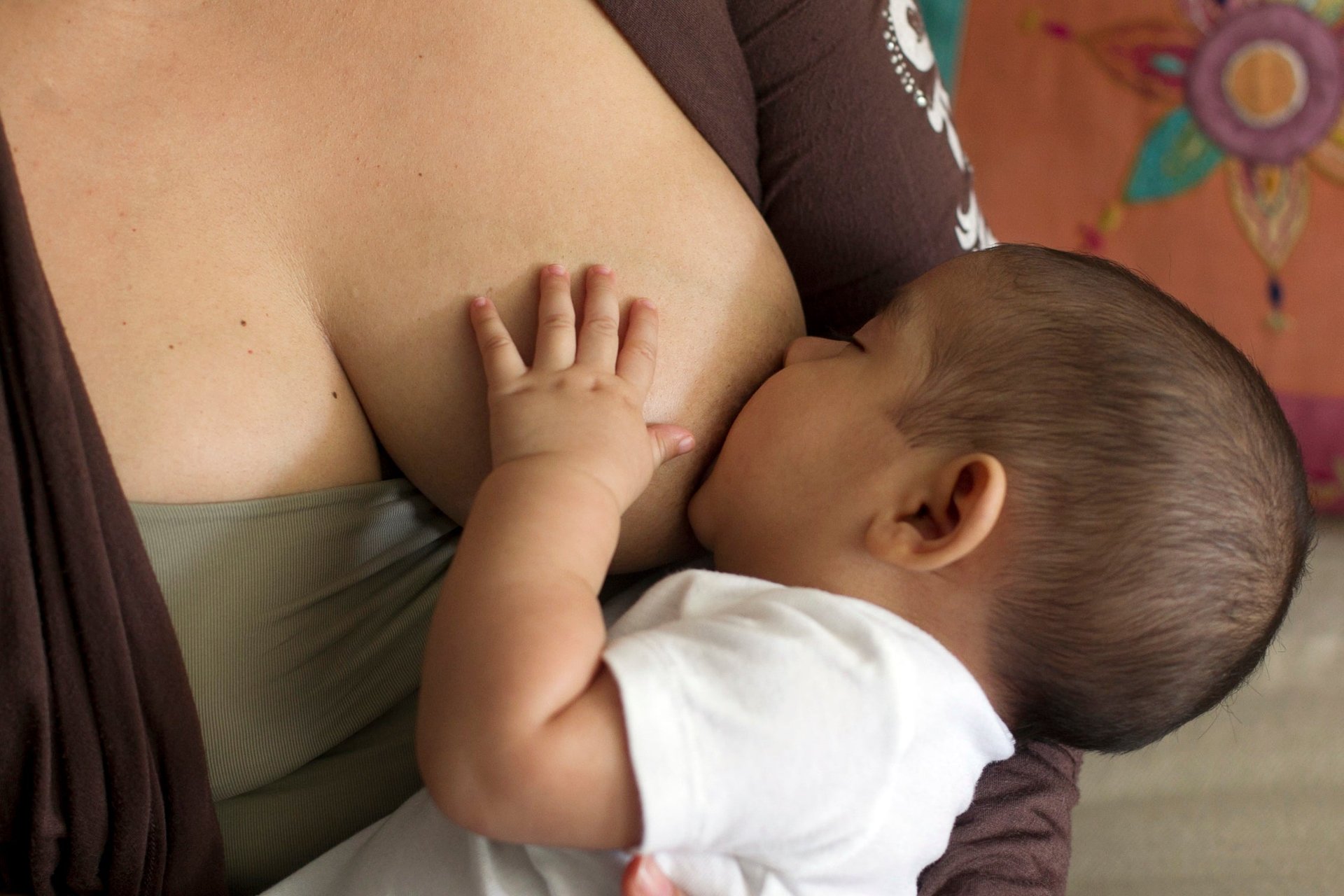Can Alexa’s breastfeeding advice give moms the support they need?
Having a baby is hard, and learning to breast-feed immediately afterwards can be trying for many new moms. You’re tired, sore, and hormonal. And when things don’t go smoothly—the kid won’t latch on, or your nipples are raw and bleeding—you panic, because you’re failing at something for which evolution has clearly made sure you’re equipped.


Having a baby is hard, and learning to breast-feed immediately afterwards can be trying for many new moms. You’re tired, sore, and hormonal. And when things don’t go smoothly—the kid won’t latch on, or your nipples are raw and bleeding—you panic, because you’re failing at something for which evolution has clearly made sure you’re equipped.
Enter Alexa, your new best breast-feeding friend.
In England, moms can ask Amazon’s Alexa questions such as “Is my baby getting enough milk?” and “What can and can’t I eat?” The answers, the UK government said when it announced the service in March, will be tailored to the age of the baby.
The service was created as part of the Public Health England’s (PHE) Start4Life program, which it launched in 2010 in an effort help support families from pregnancy through a toddler’s first five years. Breast-feeding Friend, part of Start4Life’s website, offers advice on the logistics of breast-feeding, such as positions, how to burp a baby and how to manage going back to work. In March, the service was extended to Alexa as well as a Facebook chatbot.
While it may seem odd to ask for advice from Alexa, there’s reason to think that some new moms may be more comfortable talking to a virtual assistant than their doctors. A PHE survey of more than 1,000 mothers showed that almost one-third (31%) felt embarrassed asking health-care professionals for help breast-feeding. And when moms encounter obstacles to breast-feeding, they may give up, thus losing out on the many proven benefits to mother and child. In the UK, almost three-quarters of women start breastfeeding when their infant is born; by six to eight weeks, this drops to just 44%.
“Health professionals do an excellent job of caring for new mothers, but they cannot be available 24 hours a day,” Viv Bennett, chief nurse at Public Health England, said in the PHE release. Alexa however, is happy to help 24/7, including at 3 am, when there are not a lot of people around to offer moms help and support.
Of course, it’s not clear how much support a smart device can offer beyond basic answers. Vanessa Christie, a lactation consultant at The Baby Show, told the Huffington Post that humans are always going to be a better source of information. “It’s really positive to see the government supporting new interventions to help breastfeeding mothers,” she said. “However, I feel very strongly that computerized algorithms should never be prioritized over the support from an actual human.” The Start4Life website notes moms can also call a national helpline provided by the Breastfeeding Network 365 days a year, or get help from friends and family, their midwifery team, their health visitor and local breastfeeding drop-in services.
The service also raises some interesting data privacy questions. Do you want Alexa to know when, and whether, you are breast-feeding your baby? How will Amazon protect your privacy? As Amazon continues experimenting with Alexa, more issues along these lines are likely to arise. Earlier this month, CNBC reported that Amazon was building a team within its Alexa voice-assistant division called “health & wellness” which was targeting areas like diabetes management, as well as “care for mothers and infants and aging.” The division, clearly aimed as part of a much bigger digital health strategy, has more than 12 people, wants to bring health care to Alexa users, while observing regulations and data privacy-requirements such as the Health Insurance Portability and Accountability Act.
Read more from our series on Rewiring Childhood. This reporting is part of a series supported by a grant from the Bernard van Leer Foundation. The author’s views are not necessarily those of the Bernard van Leer Foundation.